If you’re a reporter, sign up here to receive emails for future on-the-record media calls with Brookings experts.
Ahead of President Trump’s first official trip to India February 24 and 25, Brookings Senior Fellows Tanvi Madan and Bruce Riedel spoke in an on-the-record call with reporters about the context and what to expect.
The president and first lady will visit New Delhi and Ahmedabad, in Prime Minister Narendra Modi’s home state of Gujarat. The visit comes as both leaders seek a political boost following domestic controversies. The U.S. and India will be trying to seal a trade deal, which has thus far been elusive despite numerous talks over the past 18 months. They are also expected to sign defense deals, and discuss the situation in the regions to India’s east and west.
 Tanvi Madan (@tanvi_madan): “This visit is taking place in the context of a relationship for the Trump administration, which has actually exhibited more continuity rather than change, compared to a lot of other relationships that the U.S. has. The relationship has largely escaped some of the depths or to some extent heights that we’ve seen, particularly in U.S. relations with some allies. One of the reasons for this is something you will see reflected over the next few days or weeks when President Trump is in India. I think what you will see during this visit is both the strategic convergences, which are the reasons the visit is happening at all, and you’ll also see some of the divergences in the relationship, particularly on the subject of trade, where there are often frictions. There’s not quite, not quite a trade war between the two countries, more like a trade skirmish. I think you’ll also see during this visit some ways that the Indian government has over the last few years had to adjust to the very different president that President Trump is…”
Tanvi Madan (@tanvi_madan): “This visit is taking place in the context of a relationship for the Trump administration, which has actually exhibited more continuity rather than change, compared to a lot of other relationships that the U.S. has. The relationship has largely escaped some of the depths or to some extent heights that we’ve seen, particularly in U.S. relations with some allies. One of the reasons for this is something you will see reflected over the next few days or weeks when President Trump is in India. I think what you will see during this visit is both the strategic convergences, which are the reasons the visit is happening at all, and you’ll also see some of the divergences in the relationship, particularly on the subject of trade, where there are often frictions. There’s not quite, not quite a trade war between the two countries, more like a trade skirmish. I think you’ll also see during this visit some ways that the Indian government has over the last few years had to adjust to the very different president that President Trump is…”
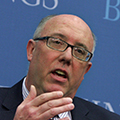 Bruce Riedel: “I want to pick up with the one point that Tanvi just made about continuity. I think this trip really is about continuity. Twenty years ago, Bill Clinton made his visit to India at just about this same time of year, and since then I think there’s been a very strong bipartisan consensus in Washington that India truly is a strategic partner. It’s an important country in the global environment. It’s a country the United States needs to get much closer to. We’ve now seen President Trump will be the fourth president in a row to go to India to celebrate that relationship, and that’s a big change, as Tanvi’s very excellent new book points out. The United States did not always think of India as a strategic partner or even a player on the world stage that was worth courting. For much of the first 50 years of India’s independence, the United States had a very ambivalent relationship with India, one troubled by its relationships with Pakistan in particular…”
Bruce Riedel: “I want to pick up with the one point that Tanvi just made about continuity. I think this trip really is about continuity. Twenty years ago, Bill Clinton made his visit to India at just about this same time of year, and since then I think there’s been a very strong bipartisan consensus in Washington that India truly is a strategic partner. It’s an important country in the global environment. It’s a country the United States needs to get much closer to. We’ve now seen President Trump will be the fourth president in a row to go to India to celebrate that relationship, and that’s a big change, as Tanvi’s very excellent new book points out. The United States did not always think of India as a strategic partner or even a player on the world stage that was worth courting. For much of the first 50 years of India’s independence, the United States had a very ambivalent relationship with India, one troubled by its relationships with Pakistan in particular…”
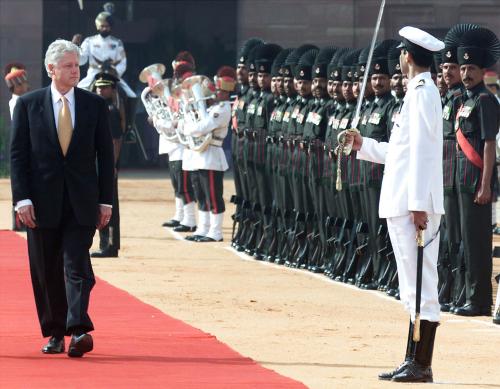
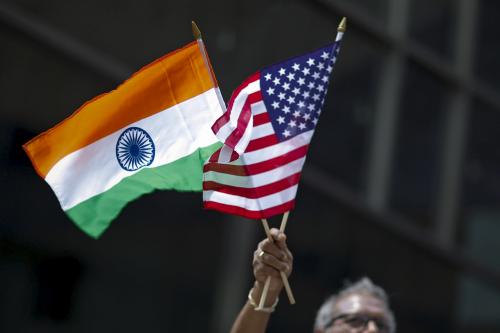


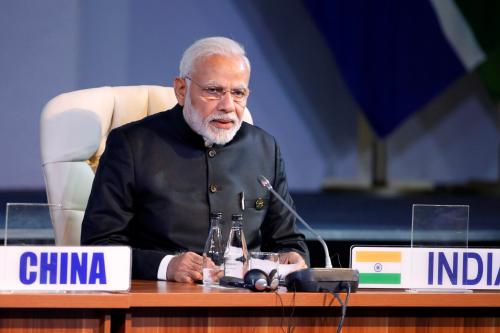
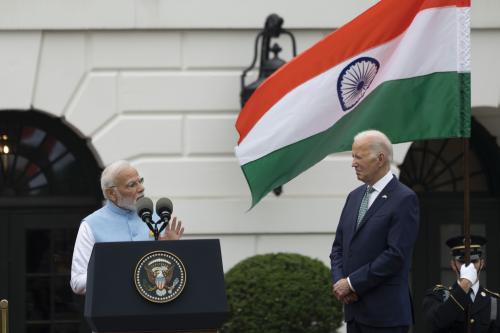
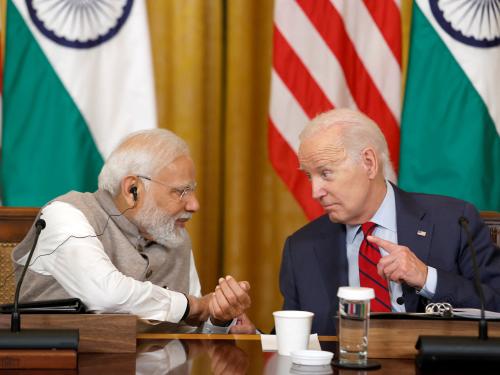
Commentary
Brookings experts provide commentary ahead of President Trump’s trip to India
February 20, 2020